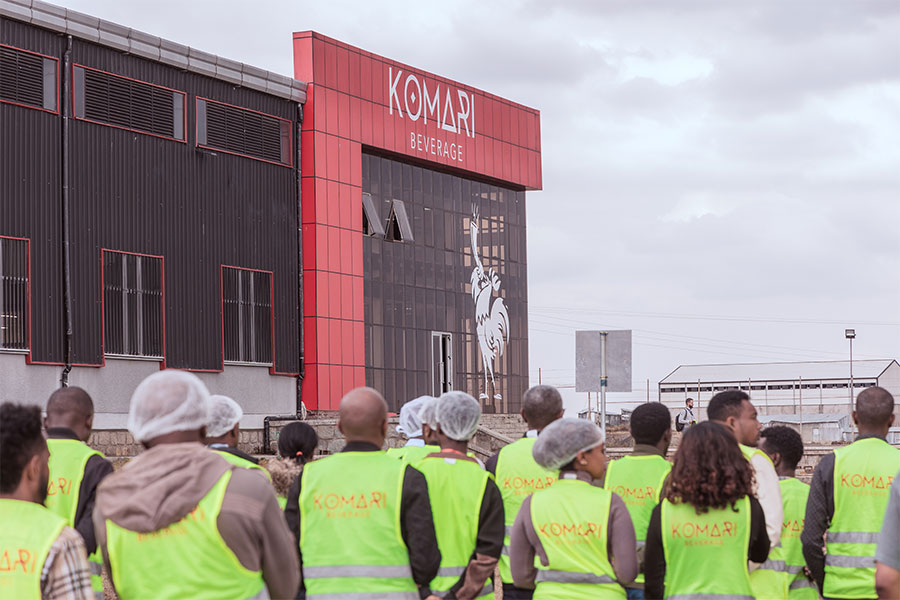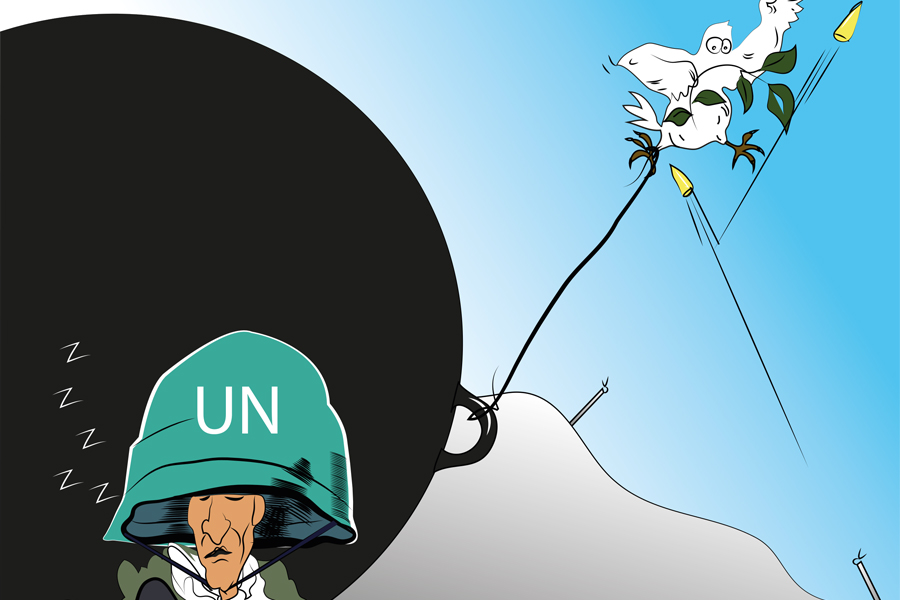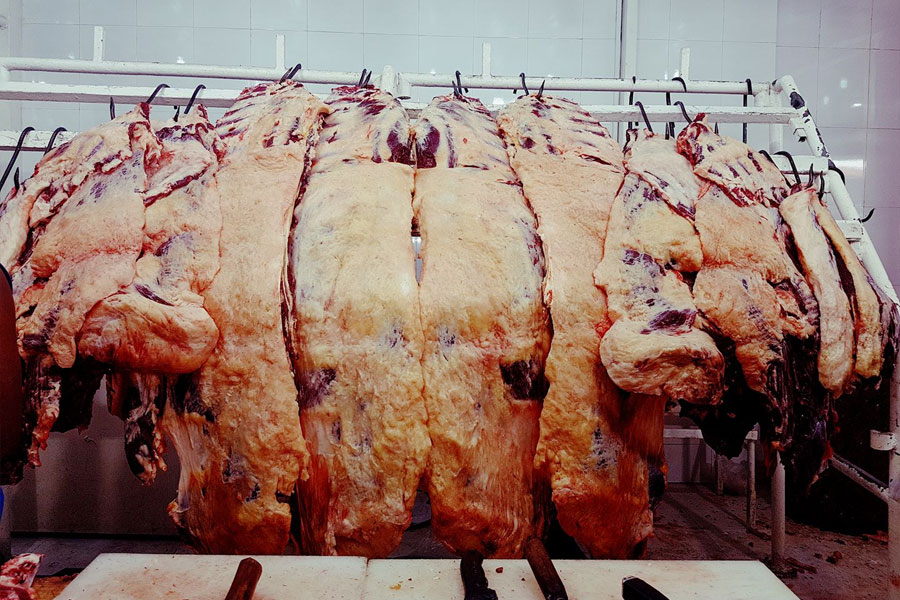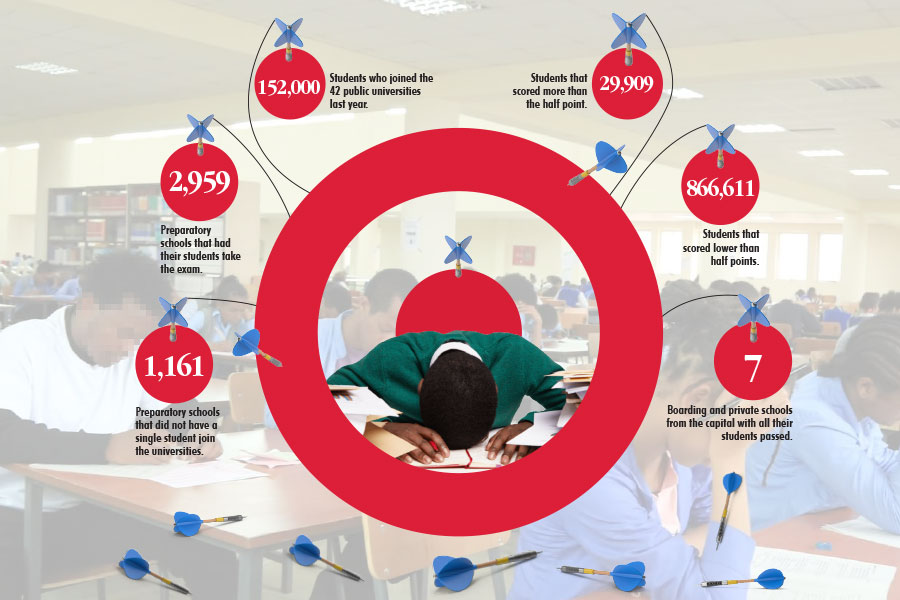
Sunday with Eden | May 10,2025
Aug 3 , 2019
By Eden Sahle
My childhood took a sudden unexpected turn about the time I turned nine years old. My mother had taken an abruptly planned trip to Asmera to visit her brother who had fallen ill. It was supposed to be a five-day trip. But the war between Ethiopia and Eritrea started unexpectedly three days into her journey, and she got stuck there. To make matters worse, my uncle passed away too.
The news of not being able to see my mother came as a shock, not just to my siblings and me, but to my father as well. All the responsibility of the family fell on his shoulders. He was recovering from surgery at the time. For my family, our world was turning upside down, hearing one scary piece of news after another. Compounding the problem, just when my father needed all the support he could get from friends and family, many of them were also forced out of the country. My father was lonely when he needed people the most. Later, we learned my mother had decided to remain in Eritrea, insisting that it should be us who should join her there, because she felt aggrieved by Ethiopia.
The whole family was miserable for months afterward. We could not make sense of our new situation and my mother’s decision. As my father struggled with his new responsibilities, we developed unusual strength and supported our father to recover from his physical and emotional wounds. We did not understand what was going on, but we remained optimistic, hoping for things to get better.
I made peace with the fact that our lives had just changed forever, and I would not have a normal childhood. We could not freely share our family situation with friends, and that made it challenging to play with them, acting as if nothing happened. Circumstances were particularly tricky for me, as I was outgoing and extra friendly toward everyone. I had to cut off my school friends, because I did not want to discuss my family situation.
After six years, slowly, my thinking began to shift. I started to understand that my mother had done something selfish toward me and everyone in the family. I blamed her for that, but I did not make her responsible for my sadness, because it was my obligation to make myself happy again. I accept the fact that my mother wasn’t willing to join us in Addis Abeba. I had to make peace with that, and I did. No question we were innocent victims in the two countries’ political crisis. But I did not want to enable the pain to continue and make me a bitter person. My mother’s decision to stay behind, while one of the most aching experiences I have ever had, was also one of the most important and powerful experiences of my life that made me who I am today.
I credit it with giving me momentous personal growth, understanding others, responsibility and forgiveness. I learned more from my mother’s action and the unfortunate war than all of my life experiences put together.
Unusually, not having a mother nearby and having a father who was busy with so many things permitted me to be responsible for my actions early on. The painful moment of my life was also the most enlightening. I intentionally chose not to make anyone responsible for my problems even if they might have caused them. I came to a truthful realisation that there is a difference between blaming someone for one’s circumstances and that person’s responsibility for our problem. Nobody else is ever in control of how we see things but us.
At any given time, people or governance may be to blame for our discontent, but we decide how we react to it. As humans, one of our natural gifts is the ability to choose how we perceive and value things.
Three years ago, my mother decided to join us in Ethiopia after close to two decades of separation. From the family to the society to the country, all the way to the governments, she made everyone responsible and made herself a victim in the long-term separation. She can blame governments for causing the crisis, but they are not responsible for the decision that caused her to miss out in her children and family life. My mother refused to accept her responsibility, and it did not help her in any way, because life does not work that way. There is no healing in being irresponsible but in taking responsibility in our actions and forgiving ourselves to move forward freely.
My mother is no exception. It is a widespread reaction. It is exciting to take credit for success. Nevertheless, taking responsibility for our mistakes and problems is far more critical. It defines our personalities, because that is where real self-awareness and growth comes from. True maturity in life happens by being honest to ourselves and confronting our most significant failures and challenges. Without failures and getting back up again, life does not function properly.
There are many problems that we are not at fault for, yet we are still responsible for them. These include the bad governance, the countrywide inefficiencies, division, and living in a society that looks down on others by labeling people in so many condescending ways.
Whether we realise it or not, we are always taking an active role in the good and bad that is happening around us. We are still choosing the values by which we live and attitudes by which we treat others. Whoever caused the problem is irrelevant, because pointing figures never solved anything. Freedom means knowing that we have the power to make the right choices in life.
Things like focusing on the bigger picture such as enhancing our skills, working efficiently, supporting others, being compassionate to everyone and humility can be experienced anytime. We have to orient our mind in a responsible way to develop such habits. These values are already within us. Life requires solving deeper problems rather than avoiding them through blames and irresponsibility.
PUBLISHED ON
Aug 03,2019 [ VOL
20 , NO
1005]

Sunday with Eden | May 10,2025

Advertorials | Feb 26,2024

Editorial | May 23,2021

Viewpoints | Mar 28,2020

Viewpoints | Nov 06,2021

Viewpoints | Nov 21,2018

Sunday with Eden | Jun 14,2025

Viewpoints | Oct 26,2019

Fortune News | May 08,2021

Fortune News | Feb 04,2023

My Opinion | 131497 Views | Aug 14,2021

My Opinion | 127853 Views | Aug 21,2021

My Opinion | 125831 Views | Sep 10,2021

My Opinion | 123461 Views | Aug 07,2021

Dec 22 , 2024 . By TIZITA SHEWAFERAW
Charged with transforming colossal state-owned enterprises into modern and competitiv...

Aug 18 , 2024 . By AKSAH ITALO
Although predictable Yonas Zerihun's job in the ride-hailing service is not immune to...

Jul 28 , 2024 . By TIZITA SHEWAFERAW
Unhabitual, perhaps too many, Samuel Gebreyohannes, 38, used to occasionally enjoy a couple of beers at breakfast. However, he recently swit...

Jul 13 , 2024 . By AKSAH ITALO
Investors who rely on tractors, trucks, and field vehicles for commuting, transporting commodities, and f...

Jun 28 , 2025
Meseret Damtie, the assertive auditor general, has never been shy about naming names...

Jun 21 , 2025
A well-worn adage says, “Budget is not destiny, but it is direction.” Examining t...

Jun 14 , 2025
Yet again, the Horn of Africa is bracing for trouble. A region already frayed by wars...

Jun 7 , 2025
Few promises shine brighter in Addis Abeba than the pledge of a roof for every family...

Jun 29 , 2025
Addis Abeba's first rains have coincided with a sweeping rise in private school tuition, prompting the city's education...

Jun 29 , 2025 . By BEZAWIT HULUAGER
Central Bank Governor Mamo Mihretu claimed a bold reconfiguration of monetary policy...

Jun 29 , 2025 . By BEZAWIT HULUAGER
The federal government is betting on a sweeping overhaul of the driver licensing regi...

Jun 29 , 2025 . By NAHOM AYELE
Gadaa Bank has listed 1.2 million shares on the Ethiopian Securities Exchange (ESX),...